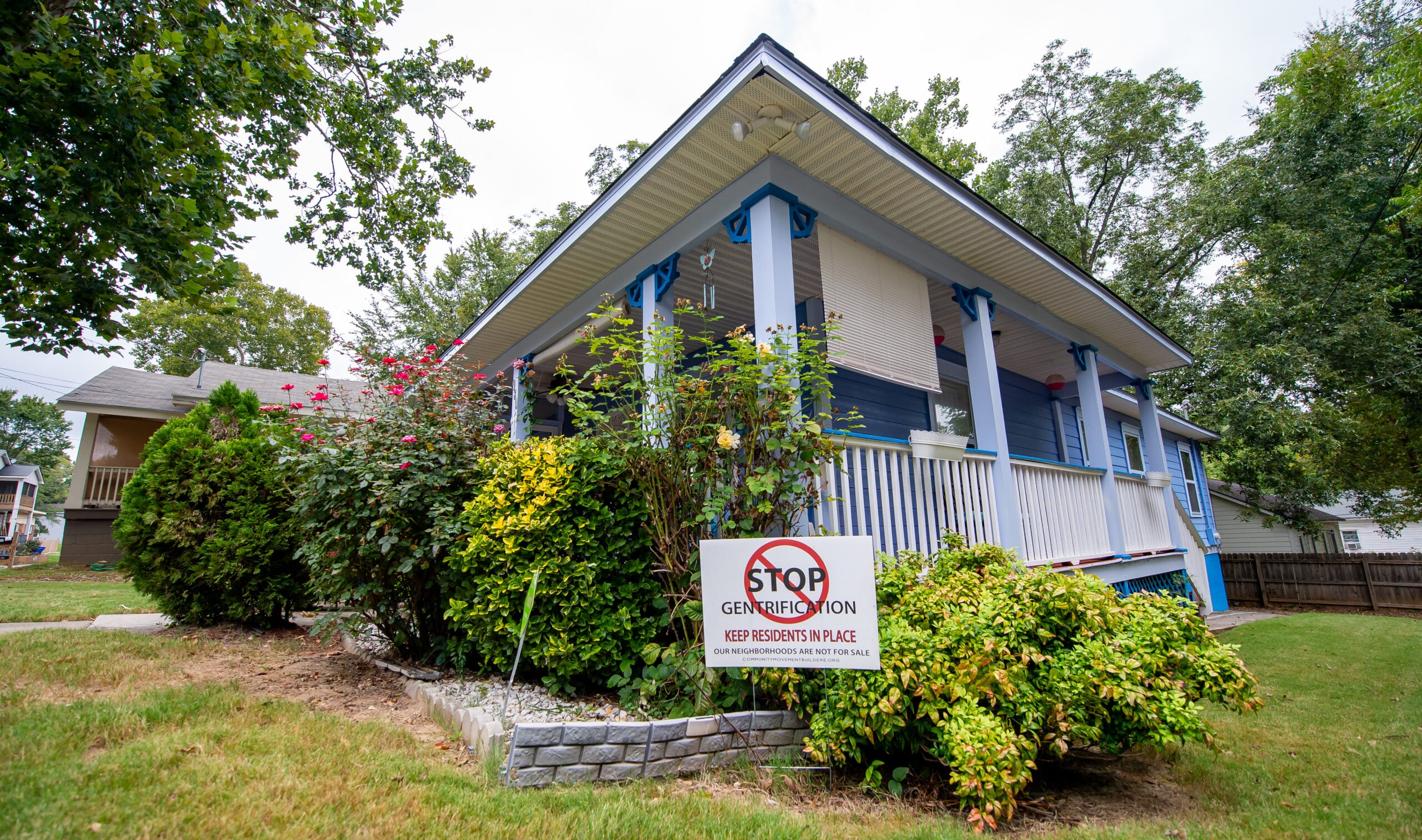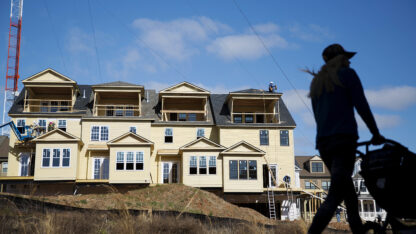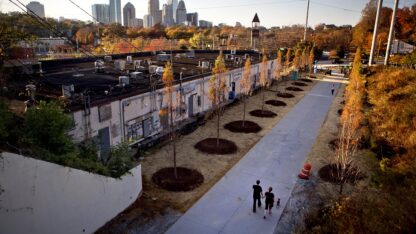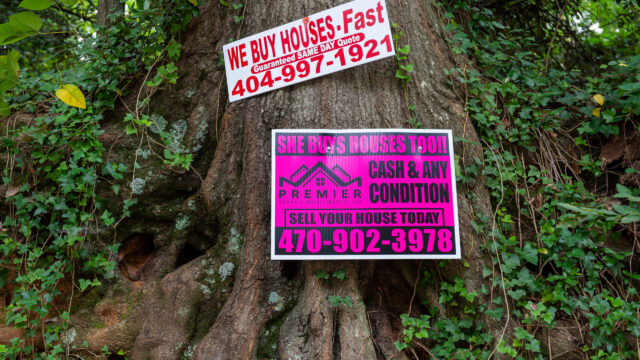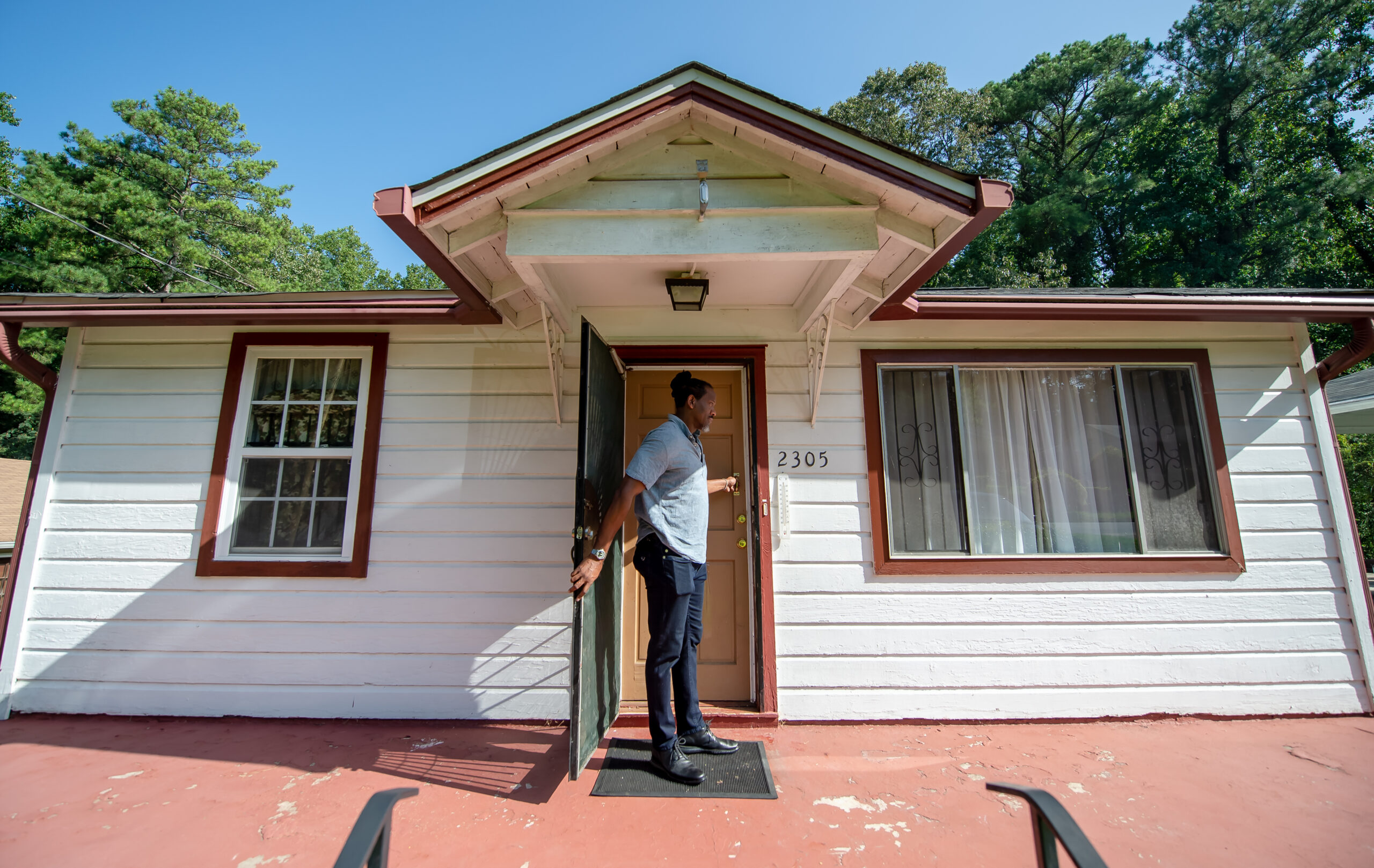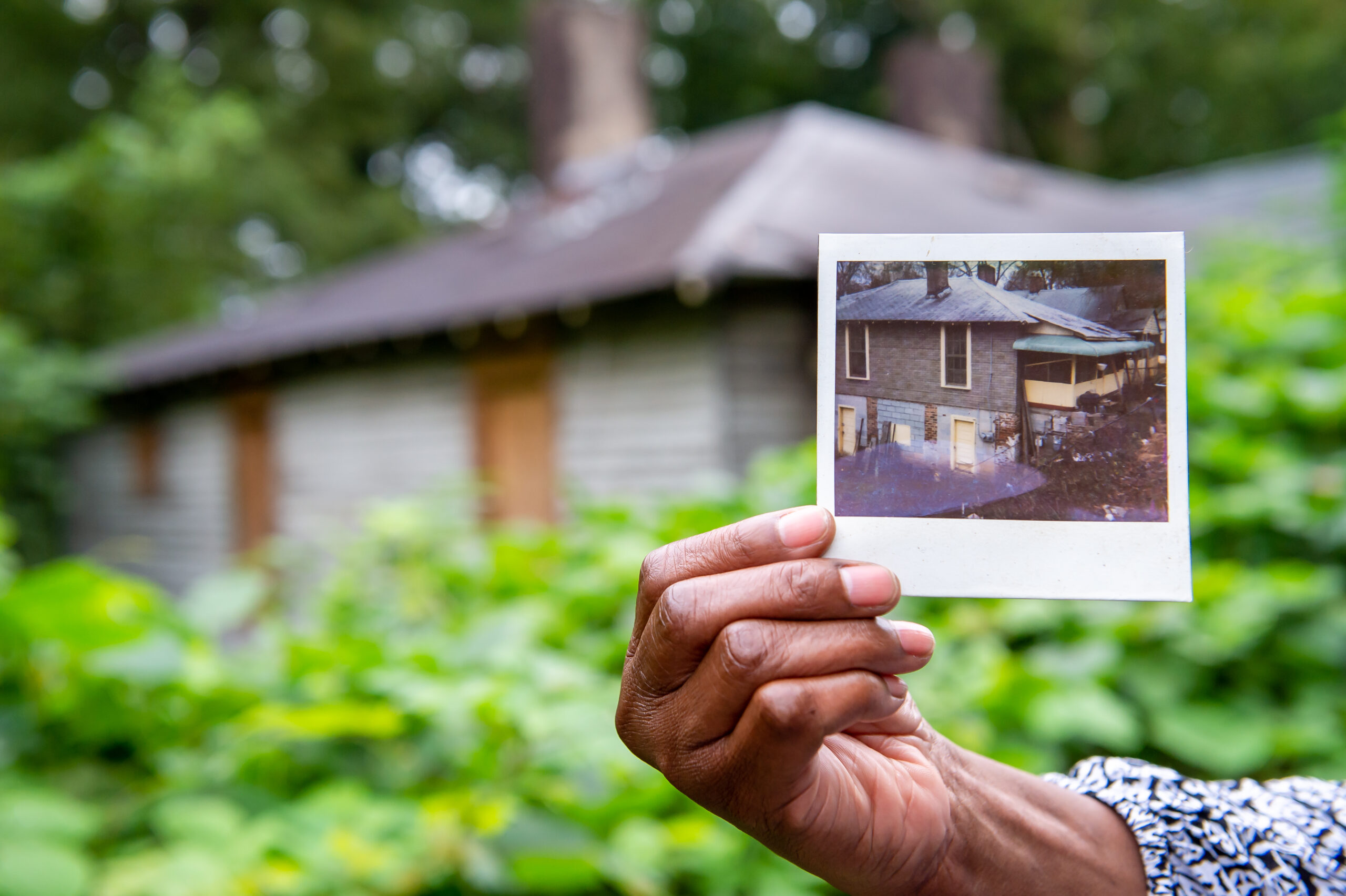“Don’t sell.” That’s been the message from Atlanta mayors to homeowners in the city neighborhoods lining projects like the BeltLine.
Mayor Keisha Lance Bottoms was the latest to deliver it. Speaking on the radio station V-103 in 2018, she said residents on the westside now live in one of the “hottest” real estate markets and advised homeowners to watch out for requests to buy their properties from investors.
“People are putting fliers in mailboxes, telling people ‘I’ll buy your house. I’ll pay cash, $65,000,” Bottoms said. “Well, you may be sitting on a $400,000 house.”
Former Mayor Kasim Reed gave a similar warning before her. At a press conference about a new city design plan in 2017, he told a room full of westside residents not to give up their homes unless the investor is “talking about triple.”
But the two mayors’ advice may have missed many homeowners. An analysis by WABE and APM Reports showed residents in Atlanta’s gentrifying neighborhoods continued to sell in the years between 2015 and 2018 and often for prices that were well below their property’s potential fair market value.
In several neighborhoods — including Pittsburgh, Venetian Hills, Grove Park and Sylvan Hills — one in four homes sold by people living in them sold for prices that were low enough to be less than half the estimated fair market value according to Zillow’s Zestimate. Gentrifying neighborhoods consistently had high rates of owner-occupied properties with sales prices that were less than half the Fulton County Tax Assessor’s estimate of fair market value.
“We have built things that have led investors into these neighborhoods. And so we need to say that. The city needs to own that.”
City Councilmember Matt Westmoreland
With investors overwhelming neighborhoods in south and west Atlanta with requests to buy properties, housing advocates say more will need to be done to protect homeowners and help them realize the potential value of their homes.
There may be the beginnings of a solution in a workshop already sponsored by the Atlanta BeltLine Partnership, the trail’s nonprofit arm.
Earlier this year, before the pandemic began, about 60 people took seats in a room at the Metropolitan Library until there was standing room only. The crowd was mostly older, veterans hats visible among them. Some relied on walkers for support.

The workshop aimed to help residents understand the offers for their homes that have become so common. Tia McCoy started her presentation by asking the homeowners what they think is behind the fliers, phone calls and text messages.
“Do they know something that I just don’t know? What’s happening around Atlanta that’s causing the influx in interest?” McCoy asked the group.
The first words out of the audience were “the BeltLine.” Others said that more people wanted to live closer to the center of the city. A woman in the crowd said she believed the investors are seeking homes like hers that are convenient to the interstate. She said, “the investors, they want your property, try to get it as low as they can get it.”
The audience was engaged. People nodded their heads and took notes. McCoy told them to think about the offers they’re receiving just like they would think about finding the best deal at the grocery store. This is the investors’ approach.
“They’re not taking it personal. This is business to them,” McCoy said in an interview afterward. “And so we have to step back and take it the same way. It’s like: it’s business.”
Approaching homeownership like business means doing research before accepting fliers offering cash.
McCoy, who works in community development, said the workshop shows residents how to do that research. It explains how to find a reputable realtor and what it looks like to compare sales prices nearby. It goes over the requirements for programs to fix up their homes.
“We’re not saying don’t sell. We’re not saying don’t entertain. But we’re saying make sure you educate yourself,” she said.
The hope is that if homeowners are educated, they’re less likely to be taken advantage of, and they’re less likely to accept artificially low offers for their properties.
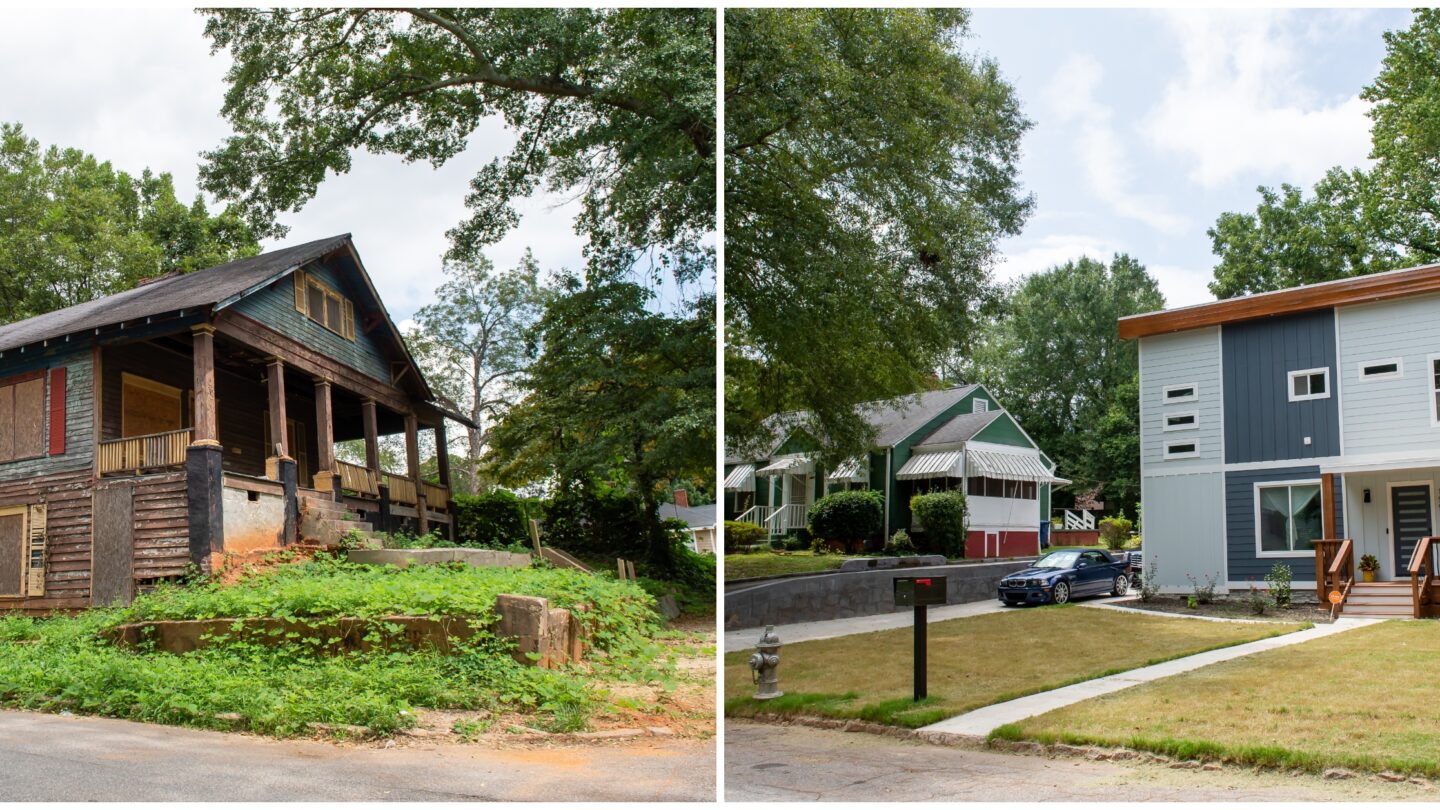
The BeltLine Partnership and the Annie E. Casey Foundation have funded versions of this workshop sporadically over the past several years. But McCoy agreed, it has limits. It only reaches homeowners who show up for community meetings.
She said that doesn’t match what residents are receiving from investors. Nonprofits, the BeltLine and the city will have to get creative to ensure homeowners have accurate information.
“We have to be the competitor in that sense,” she said. “Because if they’re there getting the postcard and getting excited, or if they’re getting the phone call and getting excited, then we’re going to have to counteract that.”
She said they may need to knock on doors and send fliers in the same way that investors are. If there are billboards saying, “We Buy Ugly Houses,” McCoy said maybe they need billboards too, saying instead, “Your home is valuable. Here’s how to save it or learn more.”
Georgia State professor Dan Immergluck said that spreading awareness is important. But he said Atlanta also may need to consider new laws to challenge the tactics of investors.
He suggested the city add a requirement to the home selling process. Before the sale is finalized, homeowners would have to receive estimates of their home’s value from real estate sites, like Zillow, Trulia and Redfin. He said it would be like rules in other cities that mandate inspections before sales.
“I think at the end of the day at least making sure people know what their houses generally worth is the most important step. And that can be done in various ways,” Immergluck said.
Atlanta isn’t the only city dealing with this issue. Homeowners in gentrifying neighborhoods around the country are also dealing with what is often described as harassment from real estate brokers. In other cities, leaders have crafted legislation targeting the investors themselves.
Chicago passed a law prohibiting investors from calling for six months after homeowners have turned down the offer to sell their. In New York, community activists have called for a “cease and desist” zone, where investors would be prohibited from sending mailers.
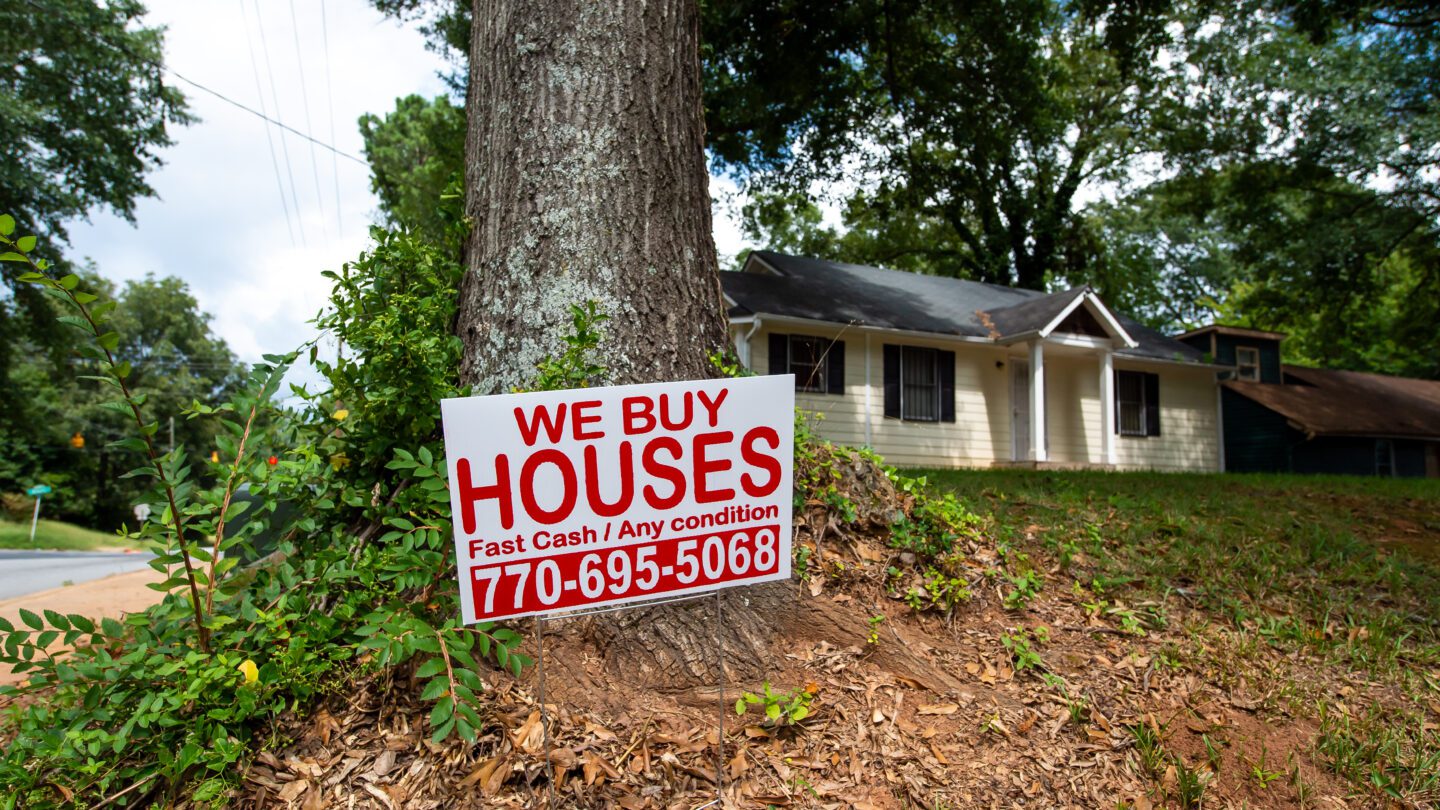
The office of Atlanta Mayor Keisha Lance Bottoms declined an interview for this story. In a statement, a spokesperson reiterated her commitment to affordable housing and equity.
City Councilmember Matt Westmoreland said he believes it’s time for Atlanta to do more. The city is responsible for public projects like the BeltLine and he said it should prepare residents for the effects of those projects.
“We have built things that have led investors into these neighborhoods,” Westmoreland said. “And so we need to say that. The city needs to own that.”
Westmoreland is not sure what solution is the best fit for homeowners in Atlanta. He said the city already communicates directly with residents through water bills. He could imagine inserting fliers that provide homeowners with more information about the value of their property.
It may be too late for many–at least those homeowners who already sold their homes according to the WABE and APM Reports analysis. But Westmoreland said the city still has a chance in the areas where there isn’t as much investor interest.
“We need to be more proactive in those neighborhoods because they are home to tens of thousands of Atlanta residents,” he said. “We have a chance to do more right by them than we’ve been able to in the past.”
This story was possible with support from America Amplified, a public media initiative, and the Corporation for Public Broadcasting. It was produced in collaboration with APM Reports, the investigative reporting unit of American Public Media.
